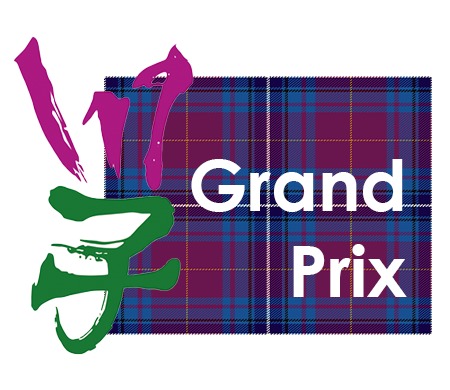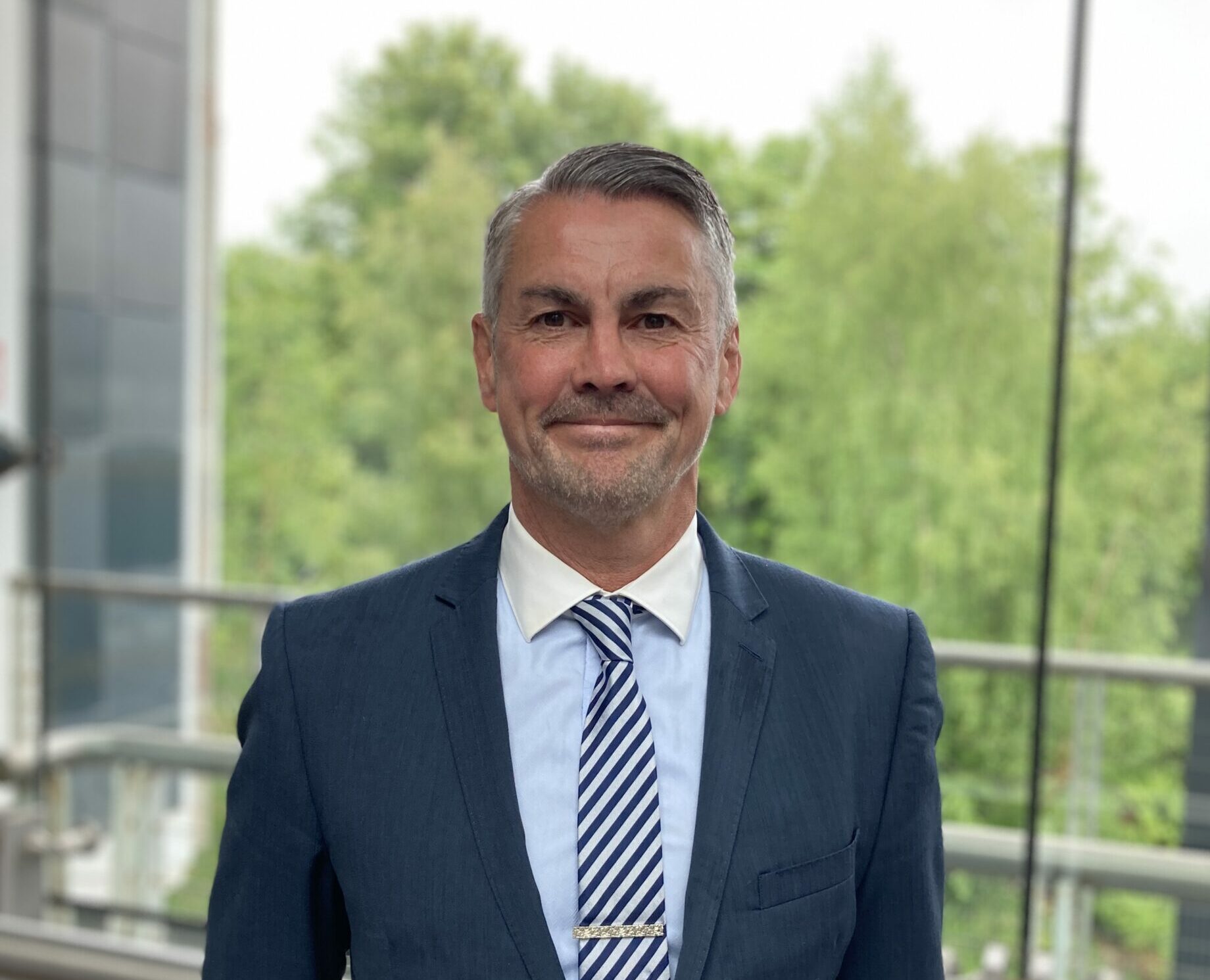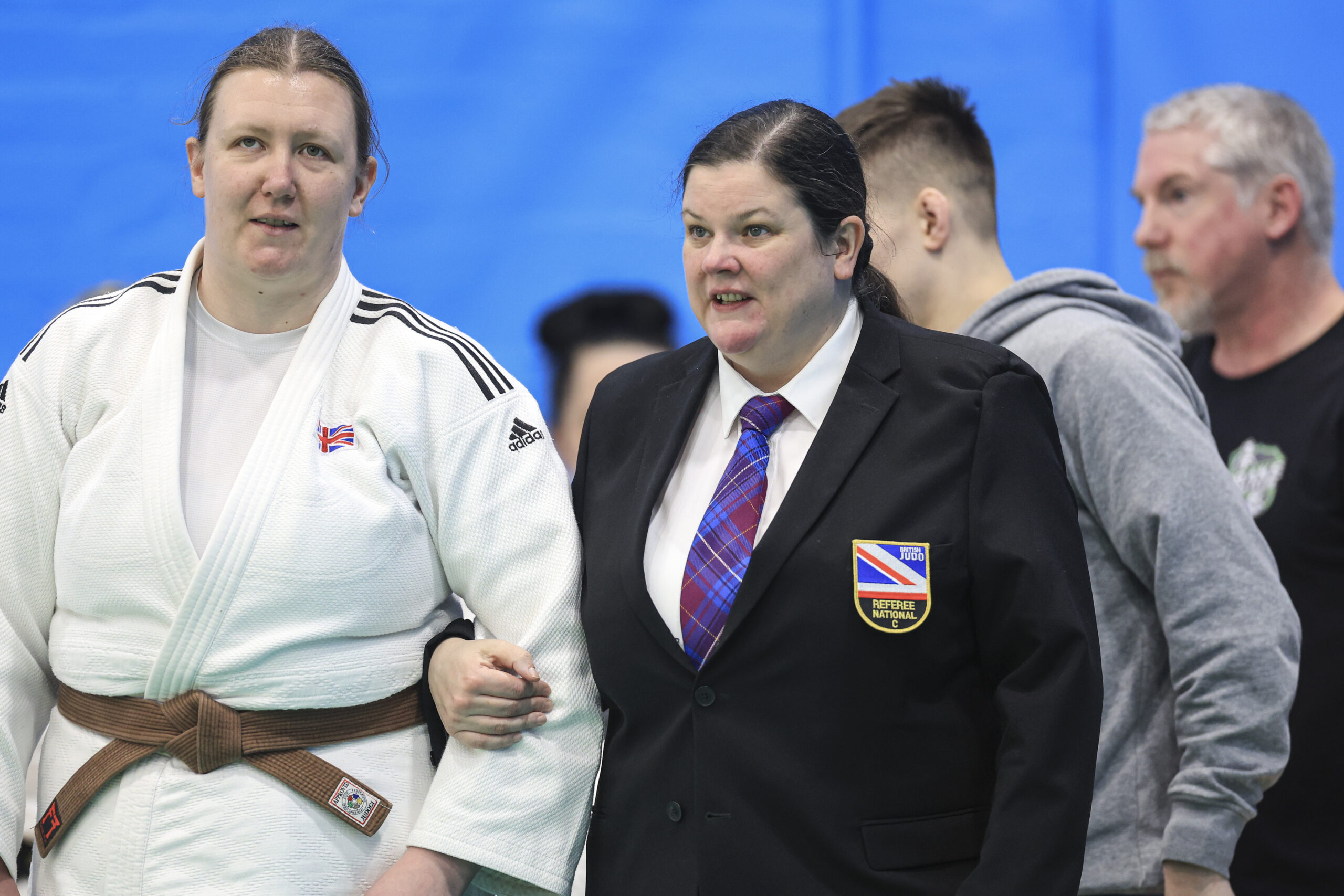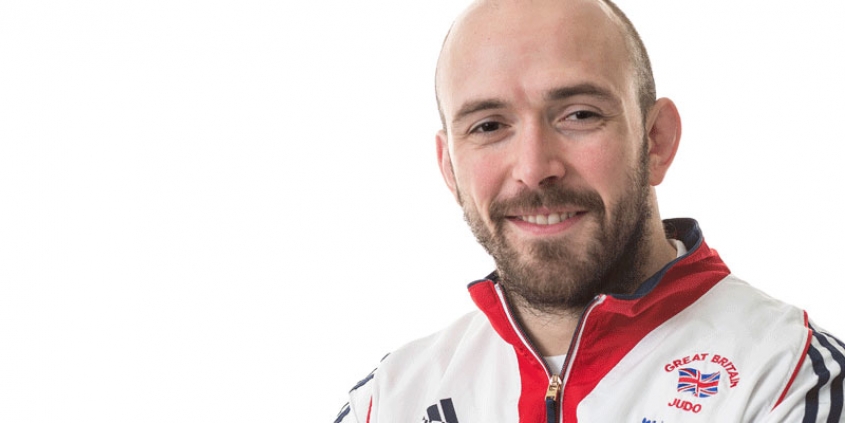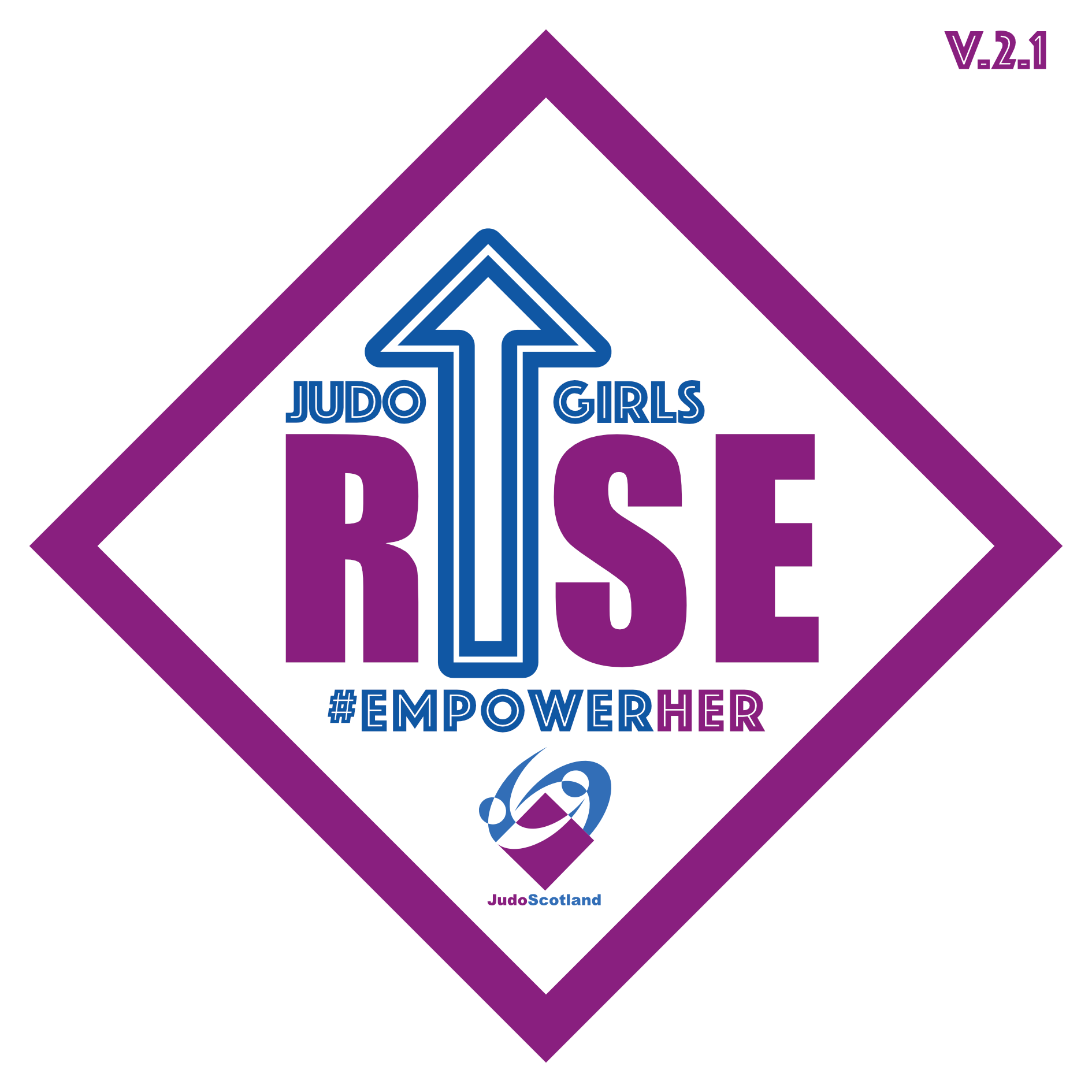JudoScotland Introduces Adapted Category to Scottish Open
Judoka from around the world gather in Largs every January for the JudoScotland Scottish Open. This year we are delighted to be adding to our programme of Judo at our flagship event which has seen Olympic Medallists and European Champions compete at the seaside town.
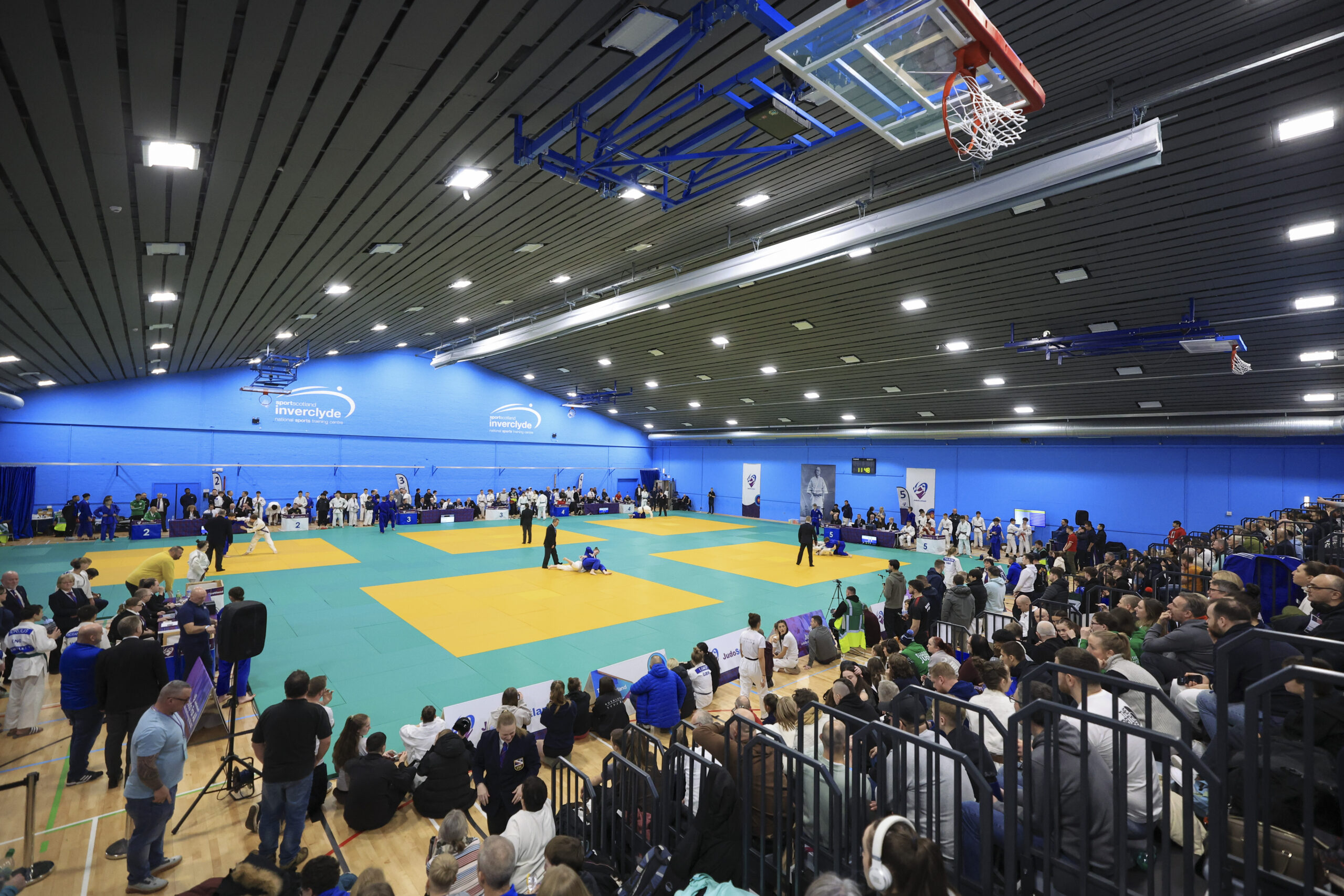
We’re thrilled to introduce adapted categories for the 2025 Scottish Open, adding a new and exciting dimension to the event while enhancing its inclusivity and accessibility. The adapted categories allow judoka to showcase their skills and compete at the highest level of judo in Scotland in front of a packed crowd at the sportscotland National Sports Centre Inverclyde; it’s sure to be a monumental occasion. This is the first time we’ve included the adapted category, and it’s the perfect moment as Scottish adapted judo thrives both at home and abroad. Scottish judoka continue to excel, with Sean Allan winning gold at the Gdansk Get Together Tournament and Kirsten Taylor narrowly missing out on competing at the Paris 2024 Paralympic Games.
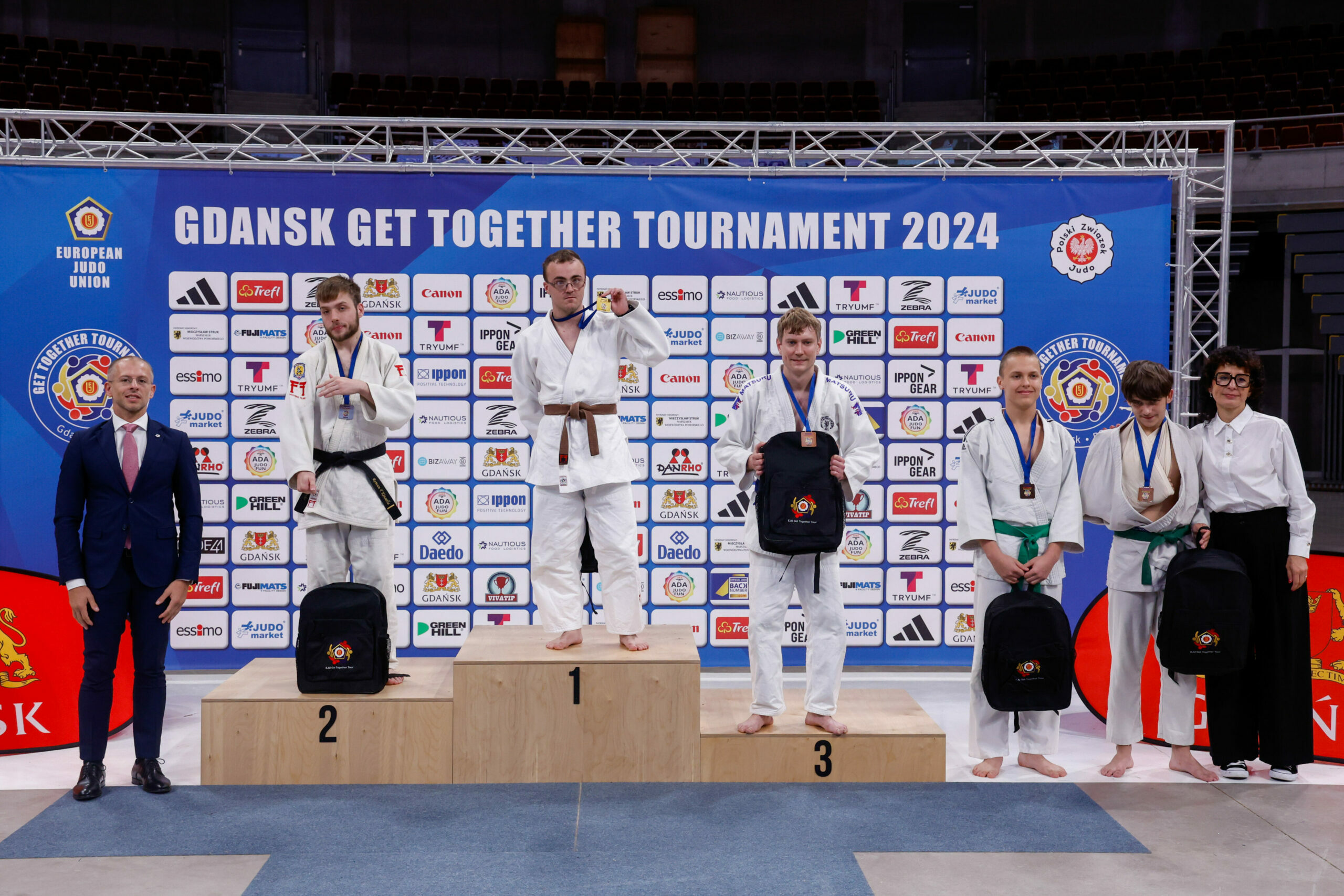
The introduction of the adapted categories at the Scottish Open supports our strategy of fostering an inclusive, diverse membership, ensuring judo is a sport for all. Which has already seen our Disability Development Officer, Stephen Sommerville, working alongside clubs to develop training opportunities across Scotland and introduced online adapted workshops to enhance coaching for athletes with disabilities.
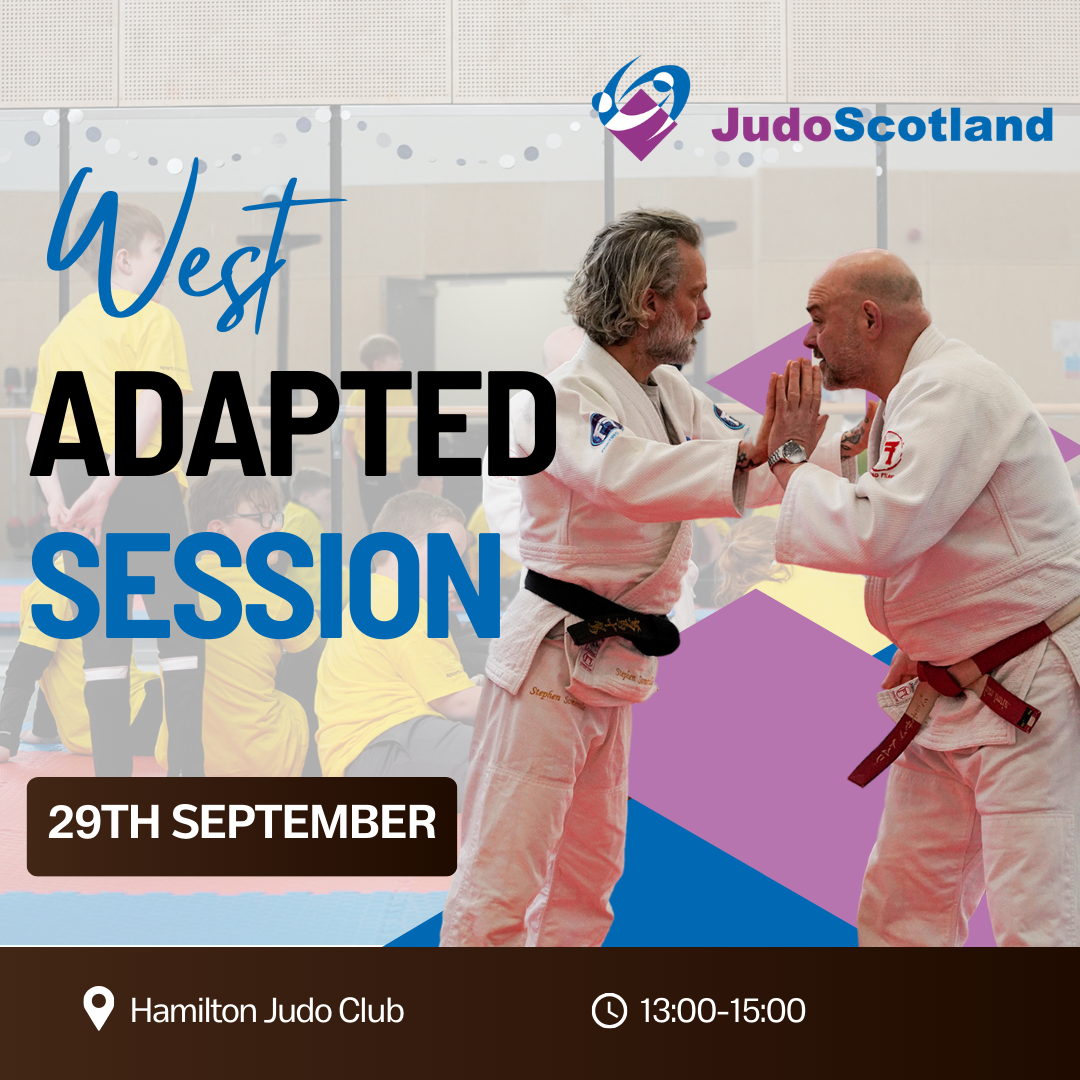
JudoScotland CEO Judith McCleary said, “We are committed to making judo accessible and available for everyone. As such, our JudoScotland Equality Working Group is working with Moving to Inclusion to identify areas in our Culture, Leadership, Experiences, Relationships and Communication that require improvements. It’s fantastic to see meaningful actions taking place across the entire judo community that will ensure judo truly is for all.”
“By offering adapted opportunities within prestigious events like the Scottish Open, we continue to develop and expand our Judo For All strategy; the inclusion of the adapted category is just the beginning. We are excited to see the impact this will have on the judo community, inspiring future generations of athletes and setting the standard for our future events.”
If you would like to find out more about The Scottish Open 2025, including how to enter, click here
2023 JudoScotland Annual Report
We are pleased to present JudoScotland’s 2023 Annual Report ahead of our AGM on the 12th of October. This report highlights key achievements and milestones from January 1st to December 31st, 2023.
The Rise of Kata in Scottish Judo
Kata has been a core part of Judo training in Scotland since 2009, steadily gaining recognition and importance among judoka of all ages and skill levels. Over the years, JudoScotland has seen a significant rise in interest and participation in Kata, with more judoka embracing it not just as a requirement for grading but as a lifelong learning journey that enhances both personal development and technical proficiency.
Last weekend marked a milestone for Scottish judo as a strong Scottish contingent headed south to compete in the British Kata Championships. It proved to be a successful weekend, with several standout performances. Paul Laverty and Alex Reid delivered exceptional displays, securing gold medals in both Katame-No Kata and Nage-No Kata, and a silver medal in Goshin-Jutsu. Colin Dunlop and David Gibson were in a competitive field of 12 kata teams and did well to achieve a bronze medal in the Katame-No kata. The pairings of Robert Milne & Andrew Gardner and Stanley Shaw & Peter McCann put in commendable efforts narrowly missing out on medals. In addition to their competitive achievements, Colin Dunlop and David Gibson were both promoted to the prestigious position of British Judo Kata Examiners, further solidifying Scotland’s growing influence in the Kata community.
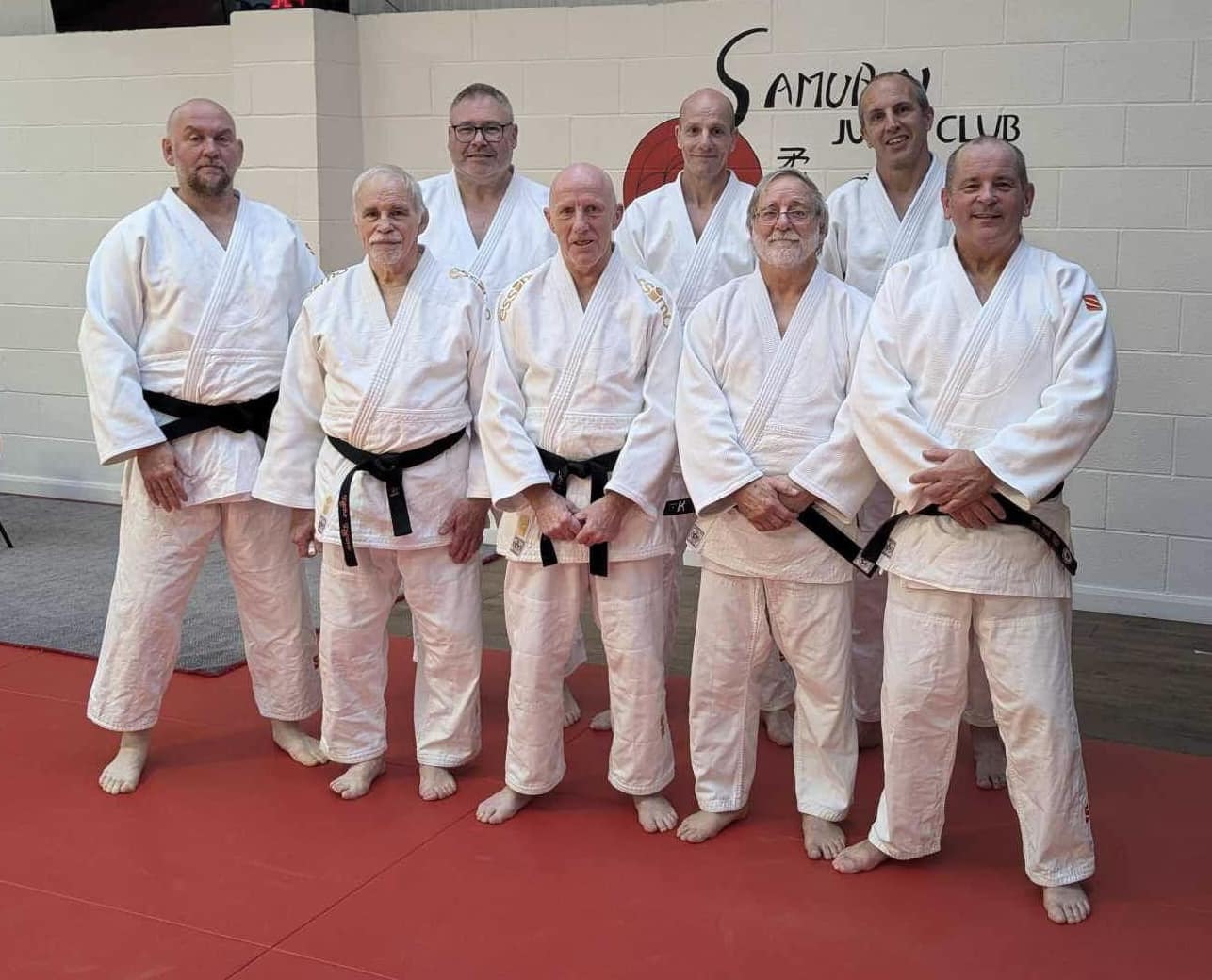
Paul Laverty, who has performed in World and European championships, shared his insights on the evolving perception of Kata and how beneficial it can be in judo training. Speaking to Paul, it was clear that Kata is on the rise in Scotland and although some may view it as a requirement for grading purposes, it’s much more than a technical exercise.
“Kata can be whatever you want it to be,” Paul explains. “If you go into it with an open mind you’ll have a lifetime of learning from it. It benefits everybody, from your own personal development to coaching. I coach differently from before I started kata. I see things so differently. It teaches me best practice and breaks things down.”

Reflecting on the past weekend’s success, he says: “We went down with no other expectations other than to enjoy ourselves. Alex and I have a very good understanding of Kata, we felt we did ok.” Analysing his partner Alex’s performance, Paul states: “There’s not many 65 year olds that can get thrown 30 times consecutively but Alex’s Kata technique is so impressive it’s almost effortless. It’s a controlled environment and shows what good Kata does for you.”
It’s fair to say the interest in Kata has grown significantly in recent years. With more courses on offer than ever before, it’s encouraged more judoka to explore its benefits. As Paul Laverty mentions, “It’s becoming more popular, the British championships this year are the busiest I’ve ever seen. It’s heartwarming to see.”
The continued growth and success of Kata in Scotland have been bolstered by courses such as this weekend’s Kime no Kata course, which has over 50 participants registered. This trend demonstrates a renewed interest and commitment to understanding the deeper aspects of our sport.
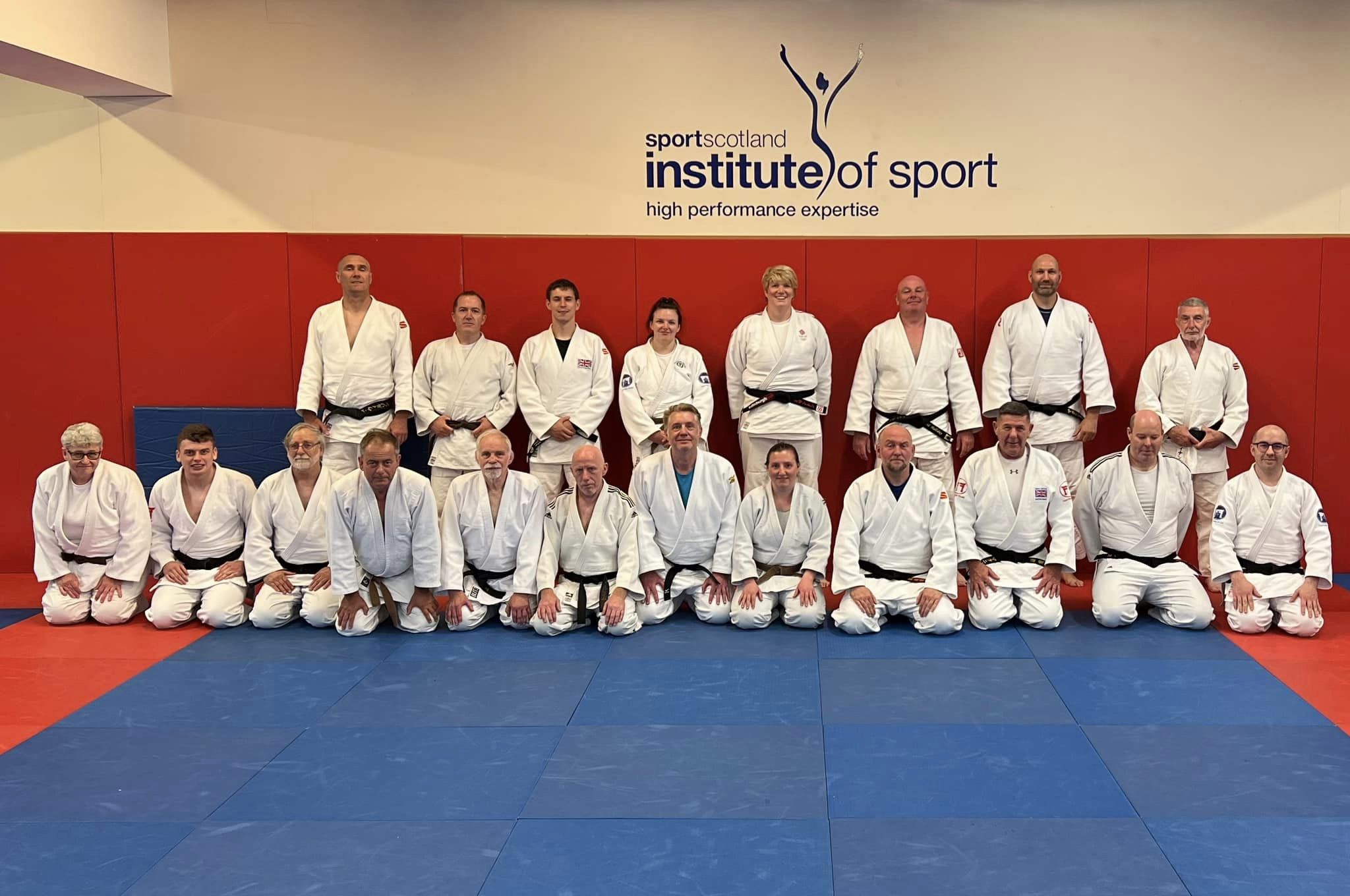
With Kata gaining more visibility and recognition, it is evident that it offers invaluable benefits to practitioners of all levels – from coaching insights to personal development, the rise is a testament to the dedication of judoka and coaches. As more people embrace Kata as an important aspect of their judo journey, we look forward to seeing an even bigger engagement within Scottish judo. The recent successes at the British Championships and sell out courses signal a bright future for Kata in Scotland.
News From the Chair
A Brief update from the Chair of some key events and recent judo news from August.
Hi all
On the 3rd of the month, we tried something different, and piloted our first ‘Olympic Watch Party’. This was an Olympic and Paralympic-themed day at Ratho, where participants could watch the judo from Paris whilst participating in a fun mini Olympics event to win prizes. Oh and enjoy delicious food! What’s not to like? And hopefully, it’s something we can do again!
On that note, the GB Paralympic Judo players will be competing on Saturday and I wish Dan, Evan and Chris the very best of luck. Hopefully, it will be a successful event for them and a productive championship.
On 5th August Judith and myself visited Randori Judo Club in Midlothian to catch up with the coaches and see what they’re doing there. They have a fabulous facility and we’re hoping to be able to work more closely together going forward.
On 16th August, the Board of Directors got together for a fun evening at the Edinburgh Festival. I feel it’s very important that, as a Board, we get to know each other – so we can develop a cohesive Board that works well together as a collective. Unfortunately, I’d previously come down with food poisoning so was in no condition to take part! However, by all accounts, it was a great evening!
I did manage to catch up in August with Graham Campbell and Andrew Scoular, the CEO of British Judo. Again, it’s important that we have good, constructive relationships with our peers and partners. And, in fact, Andrew came along the next day to watch my wife singing in the Rock Choir at the Festival!
We held the Board of Directors meeting on 27th August and as always, got through a pretty full agenda.
But overall, a quiet-ish month, bringing the holiday period to a close. And now getting ready for a busy period including our Grand Prix event with Hibari Kan at Ravenscraig on 21st September. We will be hosting our annual MacMillan Coffee Morning at Ratho on Thursday 26th September between 11 am – 1.30 pm and it would be great to see lots of you along to enjoy a blether and some home baking!
Marc Preston
6th Dan
Nominations Now Open for the JudoScotland Coaching and Volunteering Awards 2024!
In addition to our existing awards, we’re thrilled to announce the launch of two exciting new awards: the Club of the Year Award and The Lifetime Contribution Award. These accolades are here to shine a spotlight on the incredible dedication of the Scottish judo community!
Coaches, officials, and volunteers are the true unsung heroes of our judo community; selfless, humble, and dedicated, tirelessly working behind the scenes without seeking recognition. Their efforts lay the foundation for everything we enjoy in this sport, from training to competition. Now is the time to celebrate their contributions by nominating them for a JudoScotland Coaching, Officiating, and Volunteering Awards!
Winners will be announced at The Gathering, then presented their award within their clubs, surrounded by the very people who nominated them. Don’t miss the opportunity to acknowledge those who make a real difference, nominate your judo hero today!
Entries Close Friday 27th of September so get your nominations in now!
Categories and Nominations
NEW FOR 2024 Club of the Year
This award recognises a club that has made a significant positive impact through the delivery, organisation, and development of judo, while promoting the core values of our sport and JudoScotland.
NEW FOR 2024 Lifetime Contribution Award
This award honours an individual who has demonstrated exceptional dedication to judo over a sustained period.
Community Coach of the Year
This award will be made to a coach who has supported the development of judoka and has significantly increased the Judo opportunities available and participation levels within their community.
Disability Coach of the Year
This award will be made to a coach working with people with a disability. The award looks for evidence of a person-centred delivery leading to successful performance and/or sustained participation of those taking part.
Technical Official/Referee of the Year
This award recognises the hard work and dedication that technical officials and referees make to the competition structure in Judo.
Pathway Coach of the Year
This award will be made to a coach who has supported the development of judoka and has significantly increased the Judo opportunities available and achievement levels within their community.
Volunteer of the Year
This award will be made to a volunteer in a non-coaching role, aged 26 years or more , who has made an outstanding contribution to their club, the wider judo community or to the development of judo.
Young Coach of the Year
This award will be made to a coach aged 25 years or younger . This award looks for young people who have invested in their development as a coach and have made a significant impact on the people they coach. The club will be a better place for having them in the team.
Young Official of the Year
This award will be made to a Technical Official or Referee aged 25 years or younger and recognises the hard work and dedication that these roles make to the competition structure; providing fantastic opportunities and experiences in judo.
Young Volunteer of the Year
This award will be made to a volunteer in a non-coaching role, aged 25 years or under who has made an outstanding contribution to their club or the wider judo community.
Paralympic Q&A with double medallist Sam Ingram
It’s not every day you get the chance to chat with a double Paralympic medallist, but when he’s part of the JudoScotland office team, that opportunity becomes a little more accessible. We spoke to Sam Ingram about the differences in Paralympic judo, his own success at the Games, and how important it is to support the sport at the grassroots level.
Q: What is the key difference in Paralympic judo compared to Olympic judo?
A: The main difference in Paralympic judo is that the athletes start the match already gripped up. Before the referee says “hajime,” the competitors take a sleeve and lapel grip on each other. If the athletes have opposite stances, such as left versus right, the referee decides who gets the dominant grip. Aside from the starting position, all other aspects of the contest, including techniques, match duration, and the shido system, remain the same.
For spectators, the gripped-up start can make the matches more exciting, as there’s no waiting around—the action begins immediately. However, this can also lead to some athletes becoming too defensive, though typically, it results in fast-paced and intense bouts. Starting from a gripped position places more emphasis on strength and speed from the very beginning.
Q: How are Paralympic judoka categorised?
A: In Paralympic judo, athletes are divided into different categories based on their level of vision. Judoka are classified into either J1 or J2 categories, with J1 being for those who are more severely visually impaired.
Q: How integrated are Paralympic and Olympic judo training environments?
A: One of the great things about judo is that it allows for a high level of integration between athletes aiming for the Olympics and those aiming for the Paralympics. It’s common to see judoka with disabilities training in mainstream clubs because judo is highly adaptable. This integration is a testament to the flexibility and inclusiveness of the sport.
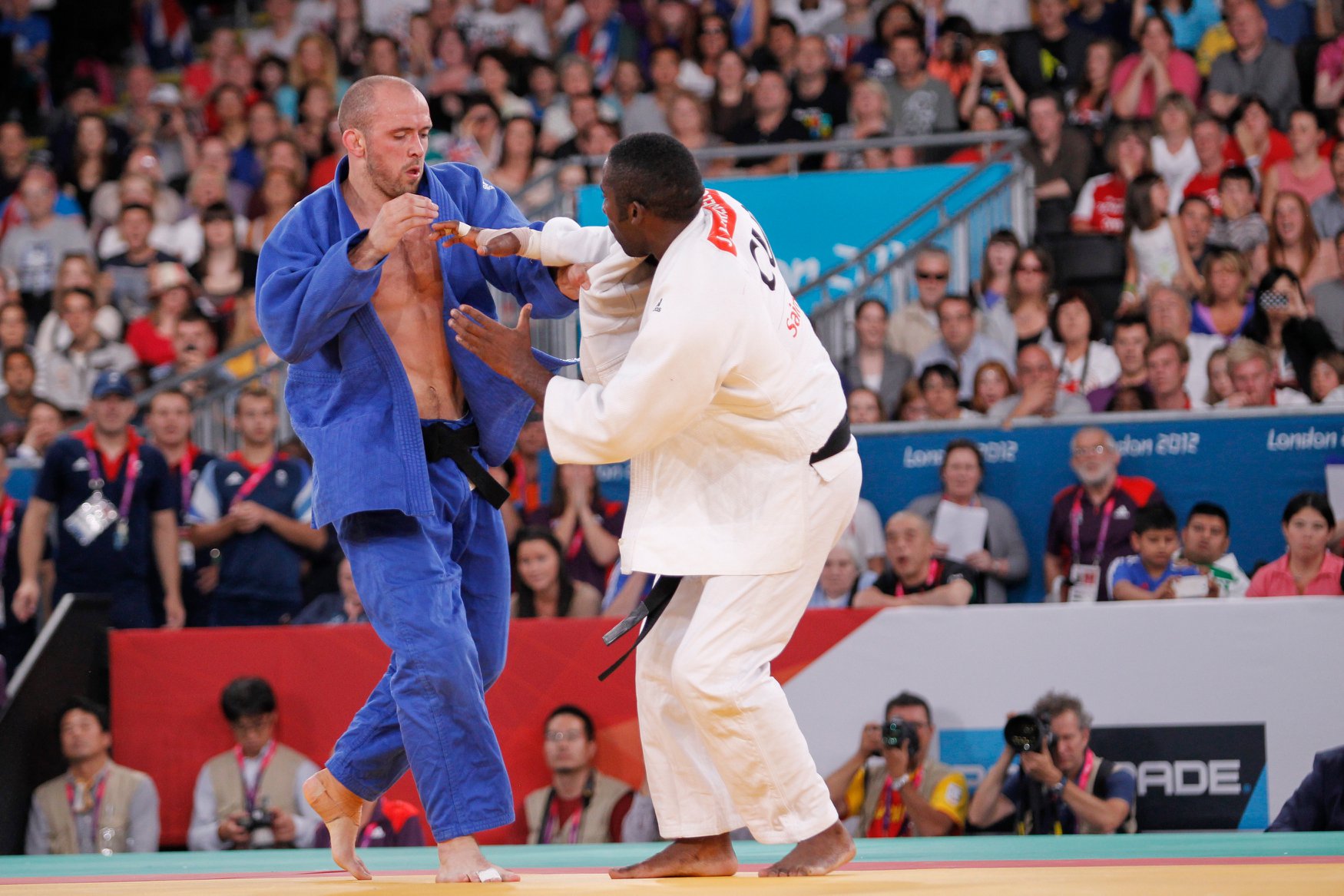
Q: The British team is looking strong this year with Dan Powell, Evan Molloy, and Chris Skelly all aiming to medal. What can you tell us about them?
A: It’s a really solid team this year. Starting with Evan Molloy, he’s the up-and-comer of the group. While he’s a younger athlete in a tough category with many high-level competitors, I think he has the potential to secure a medal. Every success begins with that first big result, and I’m excited to see how he performs.
Dan Powell, on the other hand, is an experienced athlete with a strong chance of medaling. He competed in his first Games in 2012 and comes from a family deeply involved in judo. His background and experience make him a strong medal contender.
Chris Skelly is another standout, already a Paralympic champion with a proven track record of success. Although the recent weight classification change has been a challenge, he’s adapted well, and I’m confident in his chances.
These three have put in an incredible amount of effort and time into their preparation. As a team, Britain has a strong Paralympic judo reputation, with the world holding different expectations compared to our Olympic team. We’re seen as frontrunners and have performed well for a long time. While things don’t always go as planned, other nations are definitely keeping an eye on our athletes.
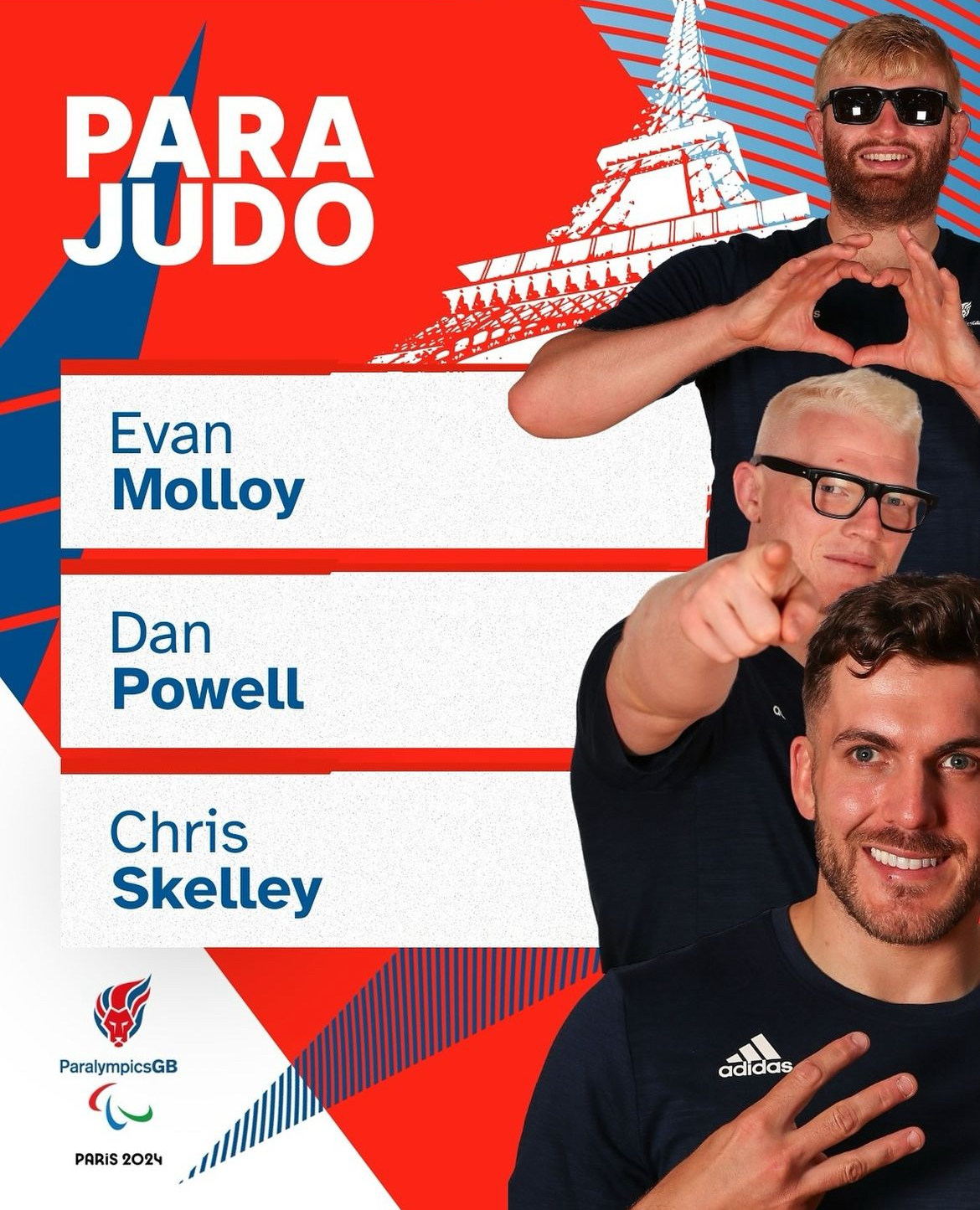
Q: Talk to us about your Paralympic journey that saw you compete at three different games, how did it all start?
A: I started judo pretty late, I first tried it in the summer in between leaving college and joining university. I was fortunate to live down the road from Coventry Judo Club, which was a really strong club with lots of people encouraging me. I was 18 but then took a break when I started university until I was about 21. I was doing a media degree, and I remember sitting with my friends and joking about making a documentary on me becoming a Paralympic athlete. I think we should’ve made it in hindsight but at the time none of us thought I would do it. Back in 2006, we were laughing about me taking judo up again and how we should film it, by 2008 I was competing and medalling at the Beijing Paralympics.
I loved being part of the performance side of sport, I had to sacrifice a lot like going out with friends, relationships and travelling but at the same time if I was to get a normal job and spend my weekends just going out I would be wishing I was a paralympic judo player. I had a great time.
Q: When did you start to realise that competing at the Paralympics would be possible?
A: I went to the World Championships in Sao Paulo, Brazil in 2007. I’d been to a couple of European Championships before but this seemed a really big deal. I went along and had four contests. Two people were a decent scrap which I won but I unexpectedly beat a French Paralympic silver medallist Olivier Cugnon de Sevricourt. I beat him and got into the final so being a world medallist opened up that door for me, it allowed me to get funding support and British Judo helped me take training more seriously. Before I competed in Brazil, I aimed to compete in London in five years but my result propelled me to Beijing where I got a bronze. I’d put it down to simply being able to take an opportunity. It came along, I was in the right space in my personal life and there was an opportunity to do something which I went after wholeheartedly. After Sao Paulo, I made the move to Edinburgh to train full-time.
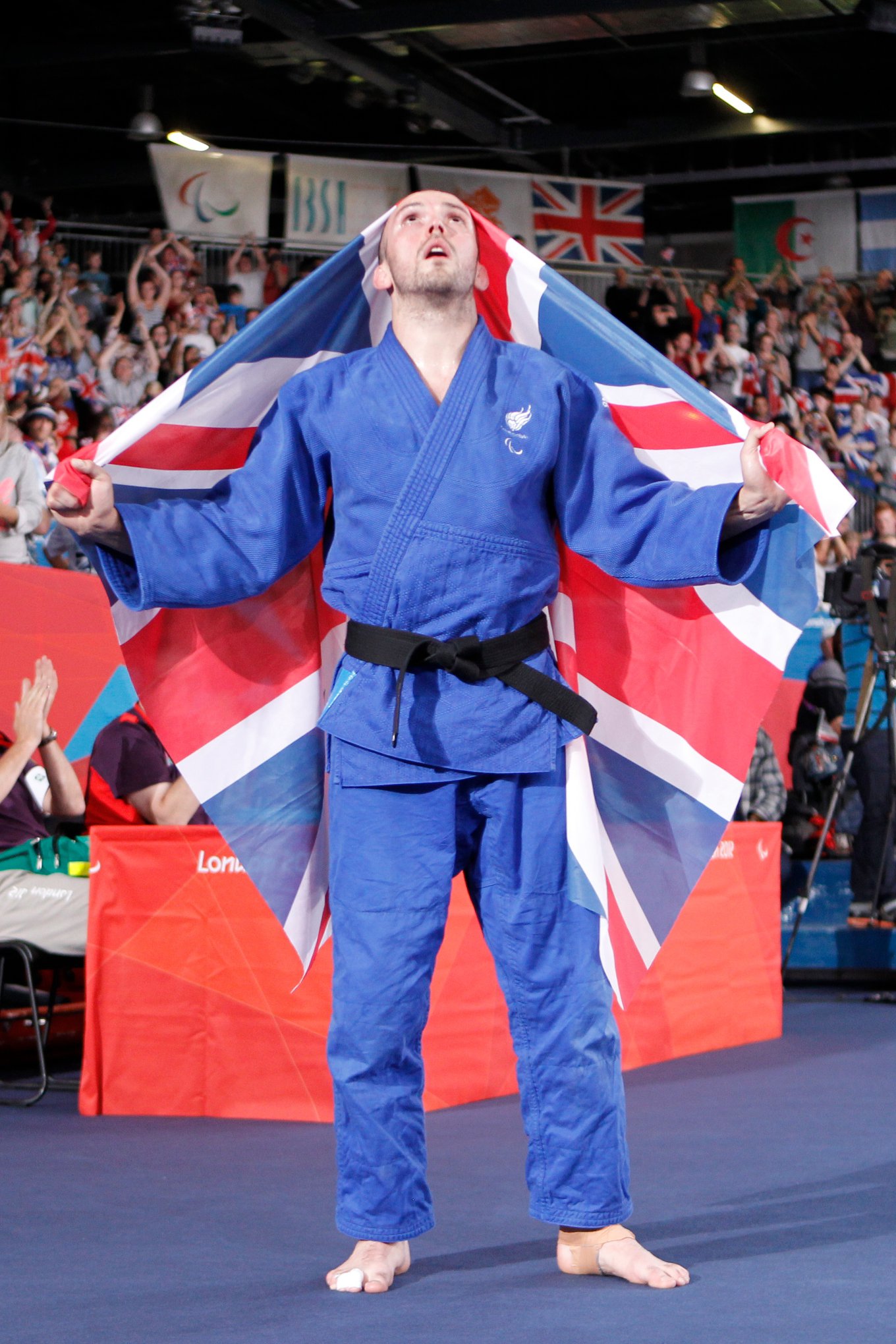
Q: What was it like being Visually Impaired and training full-time at our National Training Centre?
A: People with disabilities are part of our lives, they exist and we encounter them. I look back on my time as a performance athlete here and think about what I got. I got lifts from people, I got support in all sorts of ways. When I first came was I up to the level of international players who were excelling? No, probably not. For a long time, I thought I was taking but there is some give there as well. Most people in society haven’t spent time with disabled people. It’s really positive that now we’ve had a whole group of performance athletes that will go out and run their clubs that have had experience of being around people with visual impairments for a long time. They start to learn that disability is second to the person. I think my time here was welcoming and the coaches and athletes supported me as best they could. A lot of that is not fancy, it’s as easy as picking me up from Haymarket as they drove past, but for ten years. They’d do their best to pick me up and I’d be there on time. It’s really simple stuff like that.
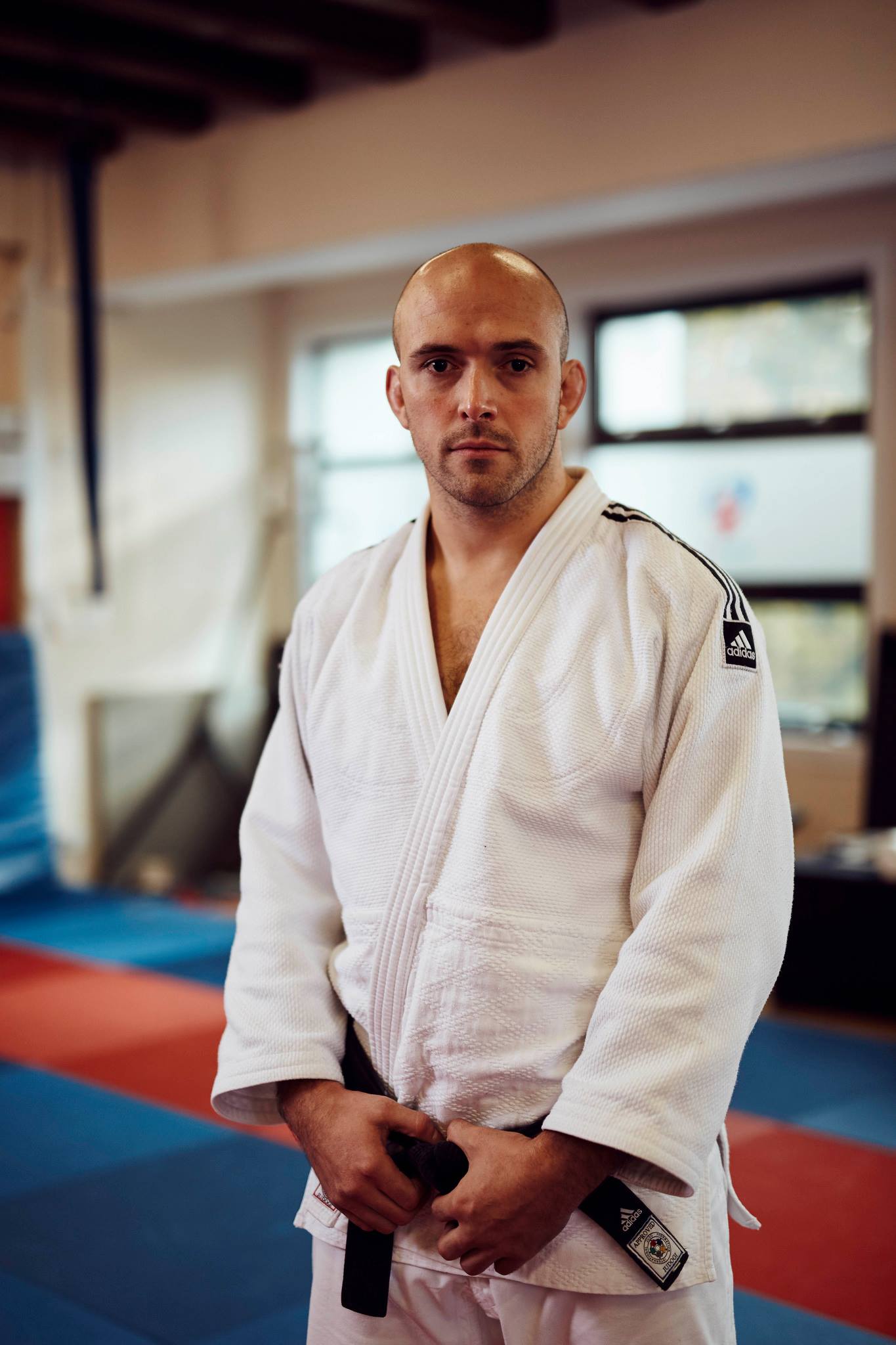
What is it like to experience the Paralympic Village?
I’ve been around a lot of visually impaired people, when you go into the village at the games you see a modern environment where everything has pretty much just been built. All of a sudden, there is access everywhere. People can get on any bus they want and there is a wheelchair ramp, it sounds obvious but everything is designed with Paralympians in mind. You realise by contrast how difficult the real world is. For example, if you’re going to get a coffee in the village there is low shelves for people in wheelchairs and all the signs are larger for those who are visually impaired. But when you get out you see the clash, no ramps anywhere and the signs are tiny. I’ve never seen it before with how disabled people are proud to be disabled. Once you are in the village everyone’s guard is let down. It’s a special place where people can laugh with each other there is a strange mood of ultra competitiveness combined with a friendly atmosphere.
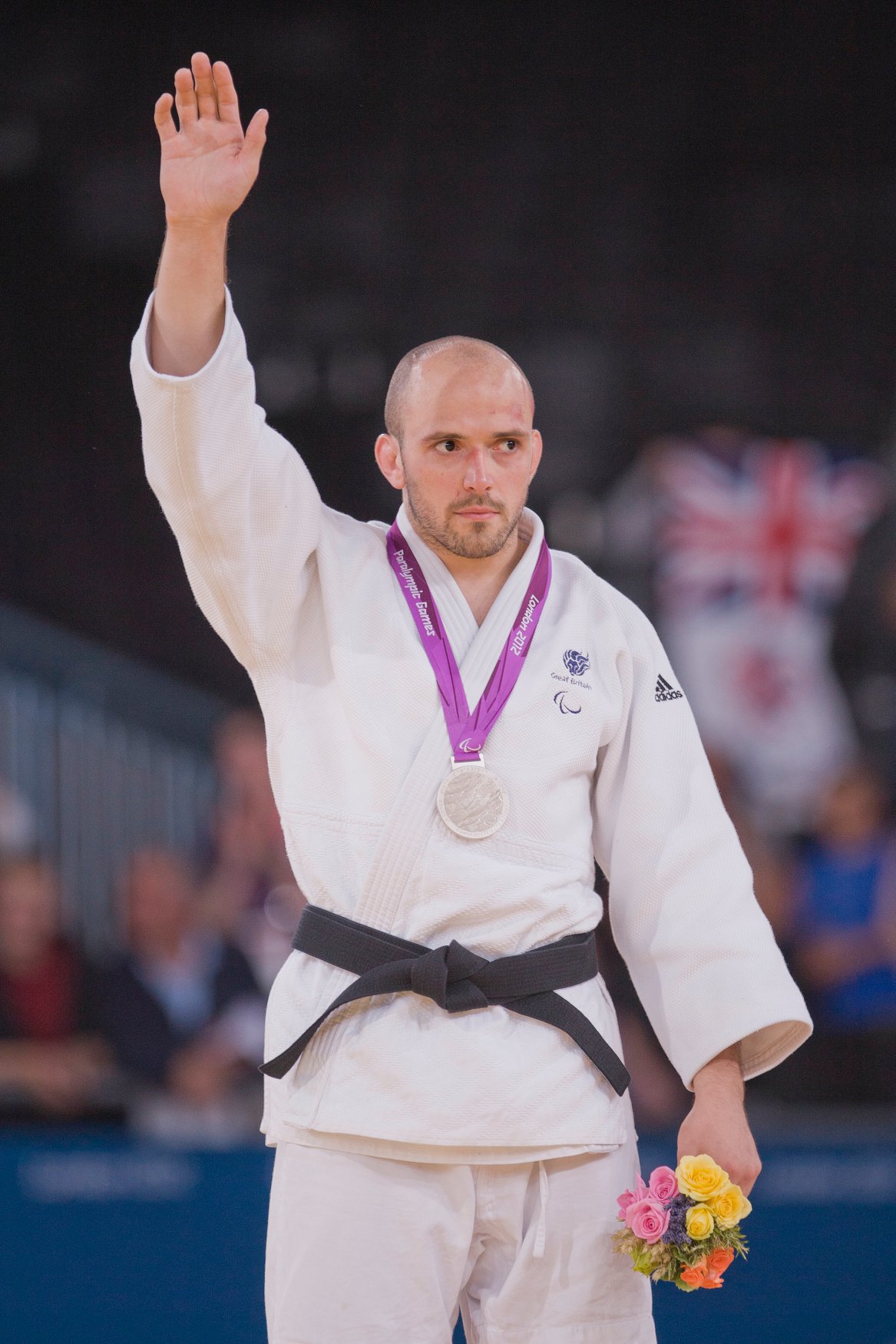
And finally, what do you believe is the most important factor in ensuring the future success of the Paralympics?
The Paralympics wouldn’t be possible without the support of clubs and infrastructures like those in judo. For events like the Paralympics to thrive, sports need to be nurtured at the grassroots level. Sometimes there can be a sense of disconnect, but as long as clubs within our organisation and others remain active, the Paralympics will continue to flourish.
For more information about Visually Impaired judo in Scotland, check out our page here.
News From the Chair
Hi all
A very short Chair’s report for July.
The Veterans National 1st Kyu & Dan Grading was held on 21st July; a good turnout considering the summer period and we are thankful for the support of our member club, Glenrothes Martial Arts Centre (GMAC) Judo who provided a great facility for the day.
The main talking point of July was, of course, the Olympic Games in Paris. Team GB had 5 female players in contention. Unfortunately results didn’t go as hoped and there were no medals however I would like to congratulate them all on their qualification; it’s a huge achievement to ultimately be competing at the Games.
The event itself was absolutely magnificent, with superb judo. The French love our sport and created an incredible atmosphere. It was an absolute joy to be in such a cauldron witnessing judo at its absolute best!
I’d like to take this opportunity to thank Andrew Scoular, CEO of British Judo and Gerry Gualtieri, Chair of British Judo, for their hospitality and for looking after us so well It’s critically important that JudoScotland and British Judo are aligned and continue to build on our very strong relationship. Also, thank you to our International Judo Federation friends and contacts; great to strengthen the bonds that we’ve developed over the years. As per my previous report, I went for the first 3 days, then Judith and ultimately Graham Campbell took over for the remainder of the event. We had some really good networking opportunities and we’ve already initiated relationships with other Federations/Associations, all boding well for the future.
As the judo came to a close, we hosted an Olympic Watch Party at our headquarters in Ratho. It was lovely to see staff and members with families & friends join in some fun and camaraderie. If you haven’t been along to our offices and National Training Centre before and would like to, you are always welcome to pop in.
But back to today, and as the start of the new school year fast approaches I’d like to commend our coaches and clubs, keep up the good work. And please have a look at Events | Judo Scotland – over the next few months, there are an array of fantastic opportunities. Let’s smash it!
Marc Preston
6th Dan
Judo Girls Rise Fund
We are excited to announce our new Judo Girls Rise Fund which will provide clubs the opportunity to access a grant of up to £600.
As we look to increase female participation across Scotland, we acknowledge the role that female-only environments play in attracting and retaining girls and women in sport. Our membership is only 29% female – we have ambitions to improve this and we hope you do too. We believe judo is a sport for all, and we know there are many more girls and women who could benefit from all that judo has to offer. This is why we are looking to grow the availability of girls or women-only participation programmes in our judo community.
Could your club become part of our new Judo Girls Rise network?
We want to inject funding into club’s that are committed to creating a sustainable programme that will allow female participation to thrive in your club.
Our fund will allow up to 8 clubs up to £600 in funding to launch or invest in a new or ongoing female participation programme in their club.
Scotland has a rich history of females participating in judo at every level, which has allowed our judoka to soar domestically and internationally. We want to rise up this next generation and give them the best experience of what judo has to offer. By listening to our female population we know that there is an infinite list of benefits to participating in judo including building resilience, increasing confidence and making lifelong friendships.
If you are successful in applying for the fund you will access wrap around support from JudoScotland that will be in place to develop your Judo Girls Rise programme and provide more experiences for your participants. This will include options to access female-led masterclasses, marketing toolkits and partnership building support.
Club Support Officer, Laura Kirkhouse, is excited to see how this fund can develop female participation in judo: “The Judo Girls Rise Fund is a great opportunity for clubs to invest in a pathway for girls and women to access judo for the first time or keep them in the sport for longer. I am enthusiastic about a network of Judo Girls Rise programmes emerging across the country, and I hope clubs seize this opportunity to inject funding into female participation. With so many outstanding Scottish female role models in judo, now is the perfect time to invest in nurturing new female judoka on their judo journey.”
To make an application to the Judo Girls Rise Fund please click the link below. Please note applications close on the 30th August. Decisions on applications will be made on a rolling basis so we advise applying as soon as possible. Funding can be applied for to begin a new female participation class or project but can also be applied for by clubs to further develop existing programme.
If you would like to discuss this opportunity please get in touch by email laurakirkhouse@judoscotland.com or phone on 07743 937 450.
Six Teams, 40 Judoka, and a Wealth of Medals: Scotland's Success in Walsall
Team Scotland entered this event knowing that we hadn’t stood on the top of the podium since 2019, with all six teams determined to make history.
As the JudoScotland supporters club began to chant and their clappers echoed through the University of Wolverhampton sports hall, the Junior and Cadet boys’ and girls’ teams kicked off the event.
It began in epic fashion with a thrilling match-up against current title holders London. In an action packed contest, the boys’ team emerged victorious with a 4-3 win.
Unfortunately, the girls’ team faced tough competition and ended with a 1-4 result. However, the girls bounced back in style with a stunning 5-0 victory over the North West, with the first three bouts ending in ippon in under 30 seconds. This saw them advance safely through the pool stage and into the knockout.

The matches were coming thick and fast, next to the mat were the pre-cadet boys who after losing 5-2 in their first match, won 6-1 against the North West with some brilliant judo on display.

After their opening victory, the junior boys were on an almighty high as they cruised past the West 7-0 and beat Wales 6-1, securing their place at the top of the pool and advancing into the knockout stages.
The senior men were up next, with the welcome late addition of Stuart McWatt, once again starting against London. In a hotly contested match, which included some crucial referee decisions, they narrowly lost 3-2, showcasing impressive throws throughout. However, they quickly bounced back with an impressive 4-1 victory over the North and another 4-1 win against the Midlands, achieving numerous ippons along the way.
The pre-cadet girls introduced themselves to the championships in style – three 4-1 victories against the South, Wales and the Midlands area saw them through the semis, finishing the tournament with a bronze after losing out to the North West 3-2 in a nail biting affair.

The pre-cadets’ match against the West provided one of the highlights of the day. A decisive ippon from Kieran Carson secured a thrilling 4-3 victory for the Scots, propelling them into the semi-finals. There, they came agonisingly close to repeating the scoreline but fell just short, losing to the South.
Unfortunately for the senior women, a depleted squad saw them exit in the group stages, despite their utmost effort and some members of the team moving up categories to eek out a win.
The senior men faced an uphill battle for the rest of the competition, starting each match 1-0 down. Despite this, they showcased impressive ippons and techniques throughout. They narrowly missed out in the semi-final, losing 3-2 to the eventual winners, the South.
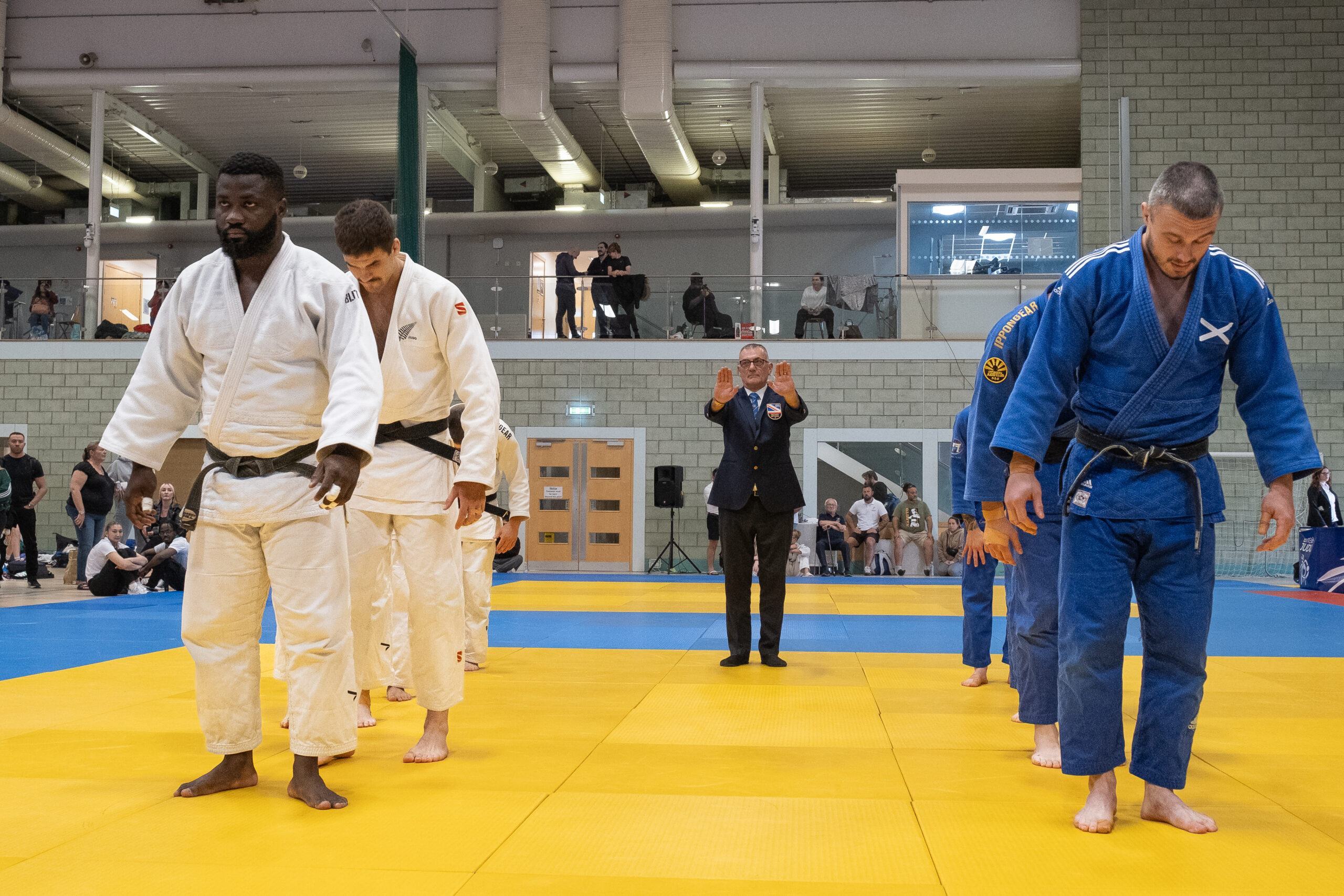
So with three semi-final defeats, all hopes of dispelling the 2019 blues rested on the young shoulders of the cadet/junior boys. Before they could envision the final, they had to overcome the North West. Our young Scots showed no sign of nerves as they rose to the occasion, securing a commanding 6-1 victory and booking their spot in the final, where they would face London once more.
As the semifinals concluded across the mats, one final match remained in focus: the junior/cadet final. As with every previous match, Coen Gilbert led the charge in the -50 category, the sportif youngster remained calm and composed, eventually winning by Ippon with just 23 seconds left on the timer.
Next up, Joe Buchanan, whose dad John had won the same competition 10 years to the very day. Took to the mat in style and won by a beautiful Ashi Waza to double Scotland’s lead.

The entire Scottish contingent, including every team member, staff, and parents, cheered loudly as Vasily Menshykov stepped up next. Unfortunately, despite leading with wazari for the majority of the match, he was ultimately defeated by ippon.
Sol Savoury stepped onto the mat with a calm confidence, fully aware that a defeat would level the scores at 2-2. His performance betrayed no hint of doubt. With an unwavering focus on his opponent, he swiftly secured victory via ippon, restoring Scotland’s lead by two points.

With the score now 3-1 and only three contests remaining, Eden Heffernan stepped onto the mat knowing that a victory would secure the win for Scotland. The tension was palpable as everyone watched with bated breath, especially as the match headed into golden score. This was Eden’s second bout against his opponent, having lost to him in the group stages.

Eden’s determination to correct his earlier loss was evident as he executed a flawless Uchi mata, clinching the trophy for Scotland. The hall erupted in cheers as soon as the throw was complete— the young Scots secured gold.
Arad Rad and Kevin Gordon were still to fight though came off second best to two top opponents.
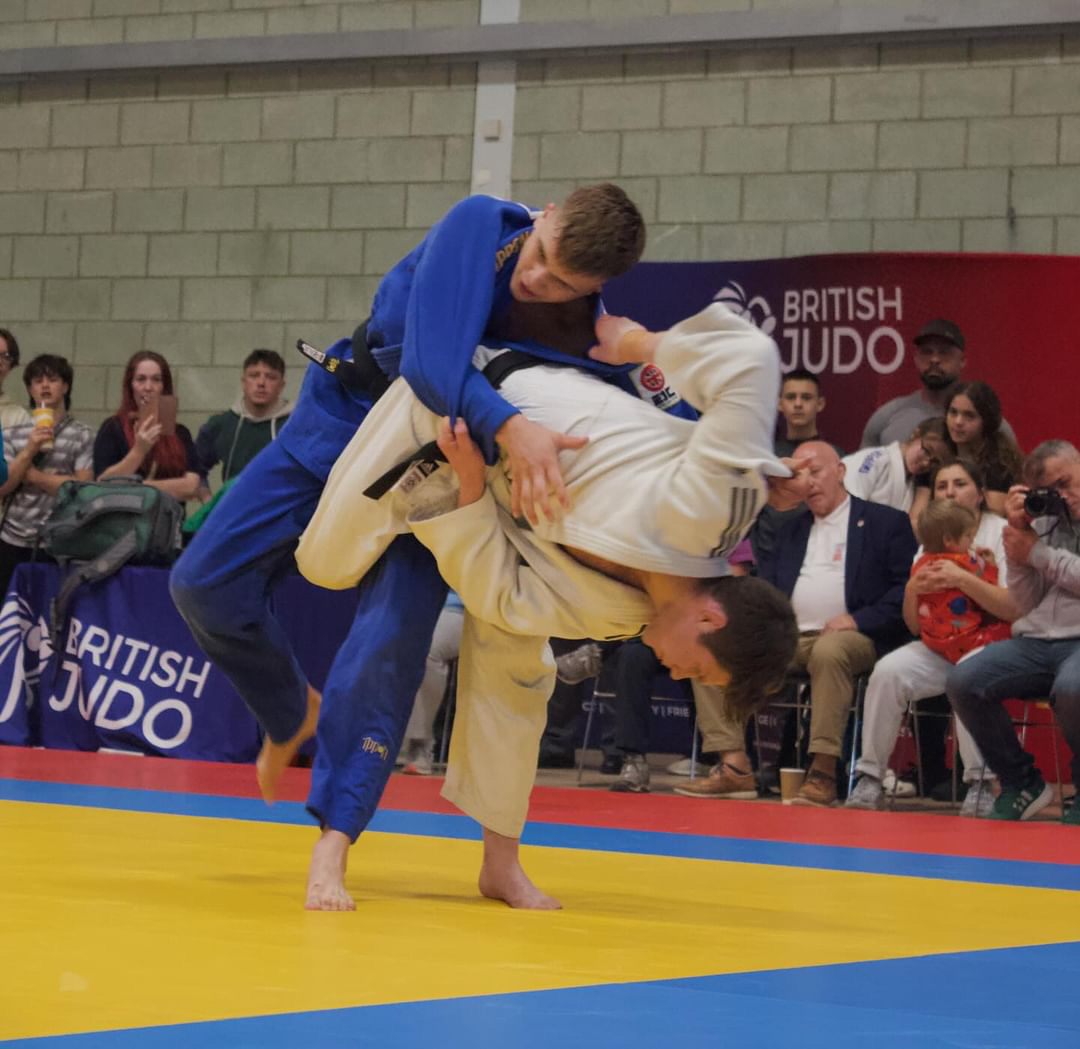
In a day filled with remarkable displays of judo and intense rivalry, the Scottish contingent delivered an unforgettable performance. From the last gasp victories to the moments of resilience and pure determination, each judoka showcased their commitment to their craft and country.
Saturday culminated in the junior boys standing proudly atop the podium, creating their own piece of Scottish judo history.


